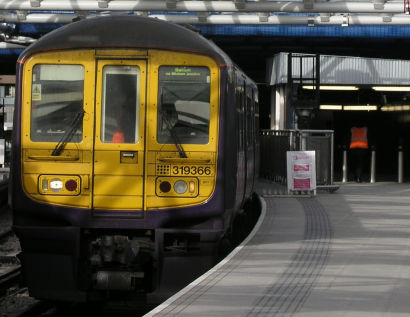THE Thameslink Programme may be at risk because the procurement process for new trains remains stalled, even though the Department for Transport named Siemens as preferred bidder for the £1.4 billion contract two years ago this month.
The warning has come in a new report from the National Audit Office, which says there are also implications for the wider network.
The contract to procure some 1,100 new vehicles for the enlarged Thameslink network from 2018 was controversially awarded in principle to German train-builder Siemens in June 2011, leaving Derby-based Bombardier as the runner up.
Although the DfT said the Siemens bid offered better value for money, the decision has been widely criticised ever since. Bombardier has remained in business in Derby until now with the help of London Underground contracts and a more recent order to build more Electrostars for Southern.
The arrival of new Thameslink trains will allow its existing fleet, which consists mostly of 25-year old Class 319 units, to be cascaded to newly-electrified lines elsewhere in the country.
The late arrival of the new trains is likely to affect these cascades, raising the possibility that some of the newly-electrified routes will have to be operated with diesels for the time being.
The delay is widely believed to be caused by the funding element of the Siemens deal, which is thought to have been affected by the wider economic crisis in the Eurozone. The Government has abandoned its original plans for a similar 'fund-design-build-maintain' contract for Crossrail trains, which are now be entirely publicly funded.
NAO head Amyas Morse said: "It’s too early in the Thameslink programme to conclude on whether or not it will achieve value for money. That will have to wait until the new service is running. However, there has been good progress in delivering the first stage of the infrastructure part of the programme on time and under budget, which the Department now needs to build on. Our principal concern is around the delay in agreeing the contract to build new trains which raises questions about the feasibility of delivering the whole Programme by 2018.”
The Department for Transport said the procurement was complex, and that it was 'important that we get it absolutely right'.
A spokesman added that that the deal was in its final stages, and that it was expected to be concluded 'shortly'.
However, previous deadlines have been repeatedly broken. RMT general secretary Bob Crow said the problems had been caused by "scandalous political incompetence", with "chaotic mismanagement of the Thameslink upgrade right up to cabinet level". He warned that "train building in the nation that gave the railways to the world is on a knife-edge".


